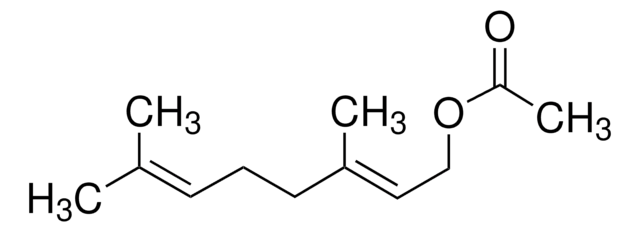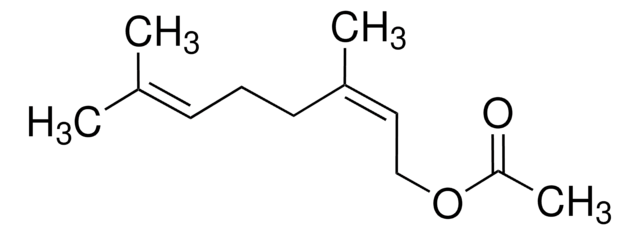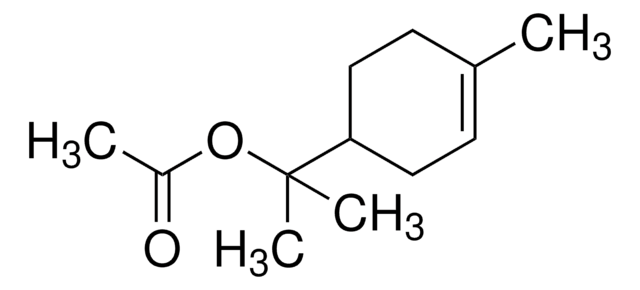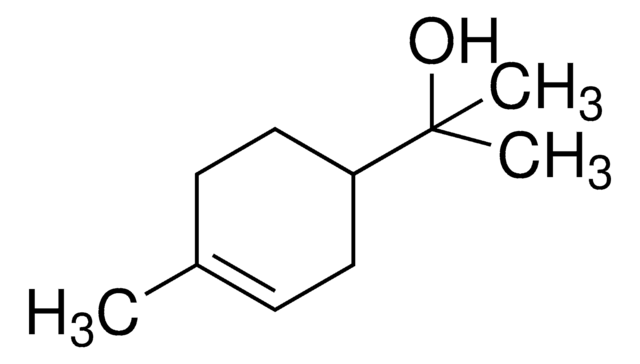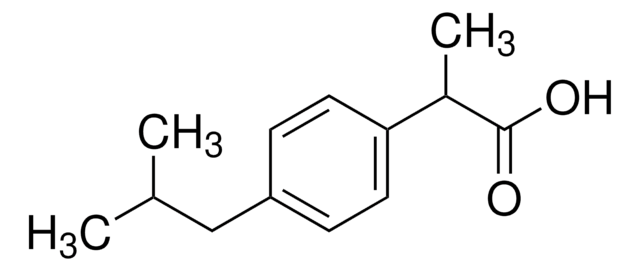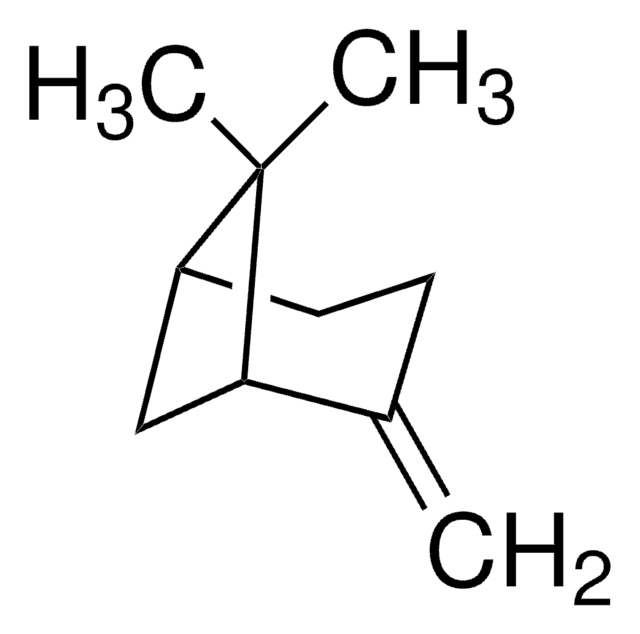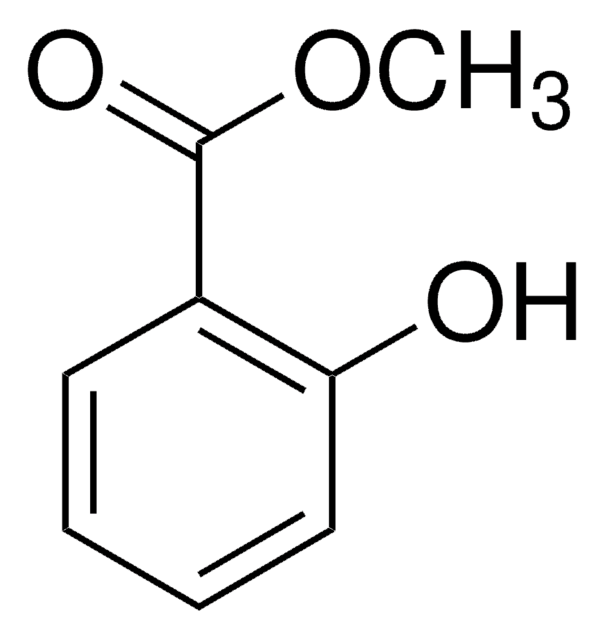W277315
Neryl acetate
natural, 90%
Synonym(s):
cis-3,7-Dimethyl-2,6-octadien-1-yl acetate
About This Item
Kosher
natural
Recommended Products
grade
Halal
Kosher
natural
Quality Level
Assay
90%
refractive index
n20/D 1.460 (lit.)
bp
134 °C/25 mmHg (lit.)
density
0.91 g/mL at 25 °C (lit.)
application(s)
flavors and fragrances
Documentation
see Safety & Documentation for available documents
food allergen
no known allergens
Organoleptic
citrus; fruity; floral; rose; soapy; sweet
storage temp.
2-8°C
SMILES string
CC(=O)OC\C=C(\C)CC\C=C(/C)C
InChI
1S/C12H20O2/c1-10(2)6-5-7-11(3)8-9-14-12(4)13/h6,8H,5,7,9H2,1-4H3/b11-8-
InChI key
HIGQPQRQIQDZMP-FLIBITNWSA-N
Looking for similar products? Visit Product Comparison Guide
Other Notes
Disclaimer
Storage Class Code
10 - Combustible liquids
WGK
WGK 2
Flash Point(F)
209.8 °F
Flash Point(C)
98.8 °C
Choose from one of the most recent versions:
Already Own This Product?
Find documentation for the products that you have recently purchased in the Document Library.
Customers Also Viewed
Our team of scientists has experience in all areas of research including Life Science, Material Science, Chemical Synthesis, Chromatography, Analytical and many others.
Contact Technical Service